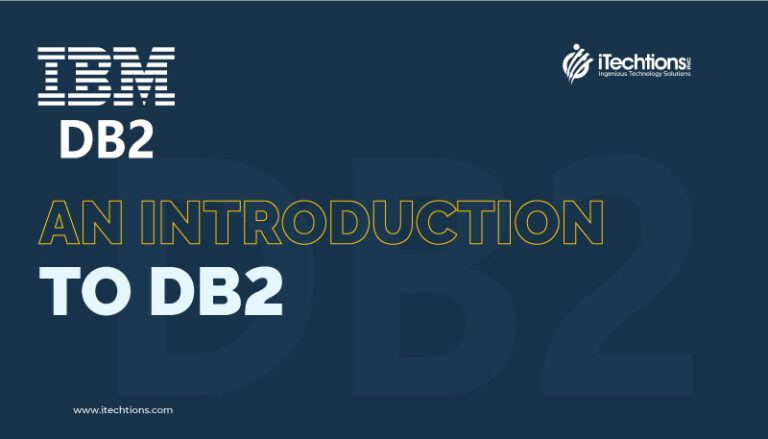Introduction
Secure key management in the cloud is of paramount importance in ensuring the protection of sensitive data. Azure Key Vault serves as a cloud-based service provided by Microsoft Azure that plays a crucial role in safeguarding cryptographic keys and secrets used by applications and services. By offering users a secure and centralized storage solution, Azure Key Vault enables the secure storage and management of keys, passwords, certificates, and other confidential information. This is achieved through industry-standard algorithms and hardware security modules, effectively preventing the exposure of sensitive information through source code. Azure Key Vault effectively addresses the common concerns associated with secrets management, key management, and certificate management, offering a secure solution for cloud-based applications and services.
The significance of secure key management in the cloud is widely acknowledged across various sources. Cryptographic keys and secrets are vital for data security in cloud applications and services, and Azure Key Vault takes on the responsibility of managing these keys, streamlining the key management process while providing users with complete control over keys for data access and encryption purposes. Administrators retain the ability to grant or revoke access to keys as necessary, ensuring proper authentication and authorization. Additionally, Azure Key Vault incorporates monitoring and auditing capabilities through Azure logging, resulting in an additional layer of security and accountability.
In conclusion, secure key management in the cloud is critical for ensuring the confidentiality and integrity of sensitive data. Azure Key Vault acts as a cloud-based service offered by Microsoft Azure, playing a vital role in safeguarding cryptographic keys and secrets used by applications and services. With centralized and protected storage, Azure Key Vault efficiently addresses concerns related to secrets management, key management, and certificate management in a secure manner. By providing full control over keys, administrators can grant or revoke access as needed, enhancing authentication and authorization. The components and features of Azure Key Vault, including keys, secrets, and certificates, enable users to securely manage cryptographic key operations, safeguard sensitive information, and ensure the overall security of cloud-based applications and services.
Overview of Azure Key Vault
Azure Key Vault is a cloud-hosted service offered by Microsoft Azure that serves as a secure storage and access solution for cryptographic keys and secrets utilized by applications and services. It provides a dependable and centralized location for storing and managing keys, passwords, and certificates essential for accessing cloud resources. With Azure Key Vault, users can ensure the protection of sensitive data by preventing unauthorized access, theft, or misuse.
The service consists of three primary components: keys, secrets, and certificates. Keys are utilized for encryption, decryption, and authentication processes. Secrets encompass sensitive
information, including passwords, connection strings, and API keys. Certificates, on the other hand, serve purposes of authentication and encryption.
An integral aspect of Azure Key Vault is its diverse array of features geared towards secure storage and management. Streamlined key management is one of these features, providing a convenient approach to generating, storing, and managing cryptographic keys through various tools and interfaces. By leveraging Azure Key Vault, users are able to securely store and manage application secrets without direct exposure, ensuring their confidential information remains protected.
Moreover, the service grants users control over access to keys, secrets, and certificates. This feature enables the implementation of granular access policies to restrict and regulate who can access the sensitive resources stored in Azure Key Vault. By efficiently managing access control, users can mitigate the risk of unauthorized access and safeguard their data.
In addition to facilitating secure storage and access management, Azure Key Vault also promotes the separation of security maintenance from application development. By centralizing the storage and management of cryptographic keys, secrets, and certificates, developers can focus on their core tasks without being burdened with the intricacies of security maintenance.
This separation enhances overall efficiency, productivity, and security, significantly reducing the risk of security vulnerabilities caused by oversight or lack of expertise in security practices.
Furthermore, Azure Key Vault places emphasis on the use of managed identity for authentication in Azure services. Managed identity enables seamless and secure authentication between different Azure services. It eliminates the need for manually managing and safeguarding access keys and credentials, reducing potential vulnerabilities and ensuring a strong security posture.
In conclusion, Azure Key Vault is a robust and comprehensive solution for secure storage and access of cryptographic keys and secrets. Its key features, such as streamlined key management, control of access to keys, and separation of security maintenance from application development, make it an invaluable asset for organizations seeking to enhance their security practices in the cloud. By leveraging Azure Key Vault’s capabilities, users can protect their sensitive data and maintain a high level of security in their Azure environments.
Use Cases and Functionality
Azure Key Vault offers various use cases and functionalities that make it a versatile and essential tool in managing cryptographic keys, secrets, and certificates. With its secure storage capabilities, it enables users to store and manage a range of sensitive data in a centralized and protected environment.
-
- Azure Key Vault allows for the storage and management of different types of data essential to the functioning of applications and services. This includes certificates, connection strings,
passwords, and other secrets. By securely storing these items, Key Vault ensures that they are protected from unauthorized access and prevents sensitive information from being exposed.
-
- One of the key functionalities of Azure Key Vault is its role in controlling access to stored data. Applications and services that require access to secrets stored in Key Vault can authenticate themselves and retrieve the necessary information securely. This authentication process ensures that only authorized applications and services can access sensitive data, providing an additional layer of security.
-
- In addition to secrets management and access control, Azure Key Vault also offers additional features to enhance its functionality. Key management is one such feature, allowing users to generate, store, and manage cryptographic keys used for encryption and decryption of data. This feature simplifies the process of key management, providing a centralized location for securely storing and managing keys.
Moreover, Azure Key Vault provides a comprehensive certificate management solution. Users can enroll, manage, and deploy public and private certificates for use with Azure and other connected resources. This makes it easier to handle certificate-related tasks, such as renewal and deployment, offering a convenient and secure way to manage certificates.
Overall, Azure Key Vault plays a critical role in safeguarding cryptographic keys, secrets, and certificates used by applications and services. Its extensive range of use cases and functionalities allows organizations to securely manage sensitive data, control access, and simplify key and certificate management. By utilizing Azure Key Vault, users can enhance the security posture of their applications and services, protecting valuable assets from unauthorized access and ensuring data confidentiality and integrity.
Benefits and Security Features
Azure Key Vault provides numerous benefits and security features that make it an essential tool for safeguarding cryptographic assets. Firstly, Azure Key Vault offers a secure and centralized location for managing cryptographic keys, secrets, and certificates. This centralization ensures that all sensitive information is stored in one secure location, reducing the risk of unauthorized access, theft, or misuse.
In terms of security, Azure Key Vault enables users to control and manage access to keys and secrets. This means that only authorized individuals or applications can access the sensitive data stored in the vault, ensuring that it remains protected from potential threats. Additionally, Azure Key Vault complies with industry standards and regulatory requirements, such as HIPAA, GDPR, and PCI DSS. This compliance ensures that businesses using Azure Key Vault can meet the necessary security and privacy standards.
Furthermore, Azure Key Vault offers robust logging and auditing capabilities through Azure logging. This means that all activities within the vault, such as key management and access
attempts, are logged and audited. Having a comprehensive audit trail helps businesses meet compliance requirements, and it also aids in detecting any unauthorized access attempts or suspicious activities.
Aside from the security benefits, Azure Key Vault also brings about improved compliance, increased productivity, and cost savings. By allowing users to manage cryptographic assets according to industry standards, businesses can ensure that they are meeting the necessary security and privacy requirements. This streamlined management process also increases productivity by reducing the need for manual processes, automating the management of cryptographic assets.
Moreover, Azure Key Vault eliminates the need for businesses to invest in their own key management infrastructure. This means that there is no need to procure and maintain hardware, software, and ongoing infrastructure maintenance costs. This not only reduces costs but also ensures that businesses can leverage the expertise and resources provided by Azure Key Vault.
In conclusion, Azure Key Vault provides a range of benefits and security features for managing cryptographic assets securely. Its centralized and secure management capabilities reduce the risk of unauthorized access, theft, or misuse of sensitive information. Additionally, compliance, logging, and auditing capabilities ensure that businesses can meet industry standards and regulatory requirements. By using Azure Key Vault, businesses can increase productivity, reduce costs, and focus on leveraging the power of their cryptographic assets without the worry of managing their own infrastructure.
Implementation and Management
Implementing and managing a Key Vault in Azure involves several steps to ensure the secure storage and control of sensitive data. Firstly, creating a Key Vault requires selecting the appropriate subscription, resource group, and region. Users can choose to enable soft delete for deleted vaults to retain and recover deleted data. It is also essential to configure the access control policies and define the necessary permissions for administrators, developers, and security administrators.
The roles and responsibilities of each stakeholder in implementing and managing Key Vault are crucial for maintaining the security and integrity of the stored data. Administrators are responsible for provisioning and configuring the Key Vault, including setting up access policies and defining permission levels. They ensure that the Key Vault is properly integrated with other Azure services and that all necessary configurations are in place.
Developers, on the other hand, rely on administrators to provide them with the necessary access and permissions to work with the Key Vault. They primarily use the Key Vault service for accessing and retrieving secrets, keys, and certificates when developing applications that require secure access to sensitive information. The developers are responsible for incorporating
the Key Vault into their applications, implementing secure coding practices, and ensuring that proper encryption and decryption techniques are utilized.
Security administrators play a critical role in ensuring the overall security and compliance of the Key Vault. They are responsible for monitoring and managing the access policies, auditing activities, and enforcing security best practices within the organization. They work closely with administrators and developers to create and enforce policies regarding secrets management and access controls. Their responsibilities also extend to regularly reviewing and updating security configurations to adhere to evolving security standards and practices.
One of the key advantages of Azure Key Vault is its flexibility and scalability, allowing users to manage multiple vaults and applications through a single interface. This feature simplifies the management process and provides a centralized platform for securely storing and managing sensitive data across a variety of applications. By using Azure Key Vault, organizations can streamline their secret management workflows and ensure consistent security standards across different systems and environments.
In conclusion, the implementation and management of Azure Key Vault involve several important steps and the collaboration of various stakeholders. Administrators, developers, and security administrators all have distinct roles and responsibilities in ensuring the secure storage and management of sensitive data. The flexibility and scalability of Key Vault make it a powerful tool for managing multiple vaults and applications through a single interface, providing organizations with the means to streamline their secret management processes and enforce consistent security standards.
Final Thoughts
In conclusion, secure key management in the cloud is of utmost importance in protecting sensitive data, and Azure Key Vault serves as a reliable and robust solution for this purpose. With its secure and centralized storage capabilities, Azure Key Vault effectively addresses the concerns associated with secrets management, key management, and certificate management. By offering industry-standard algorithms and hardware security modules, it ensures the safeguarding of cryptographic keys and secrets used by applications and services. Azure Key Vault also provides users with complete control over keys and access, enhancing authentication and authorization. Additionally, Azure Key Vault’s components and features, such as keys, secrets, and certificates, enable users to securely manage cryptographic key operations and safeguard sensitive information. By leveraging Azure Key Vault, organizations can enhance their security practices, protect valuable assets, and ensure data confidentiality and integrity in cloud-based applications and services.









